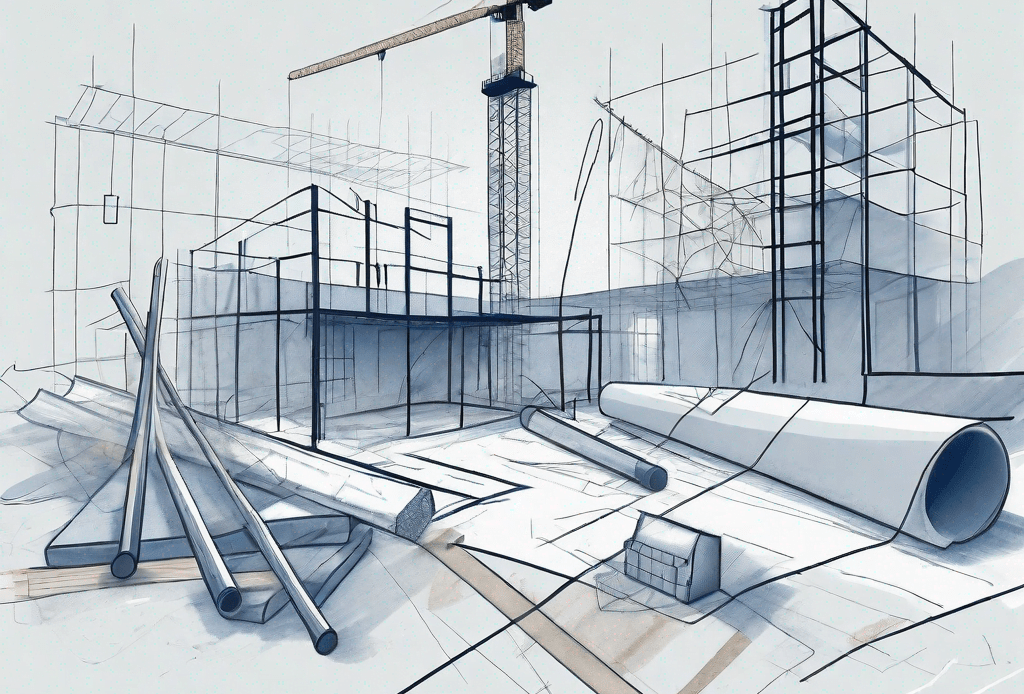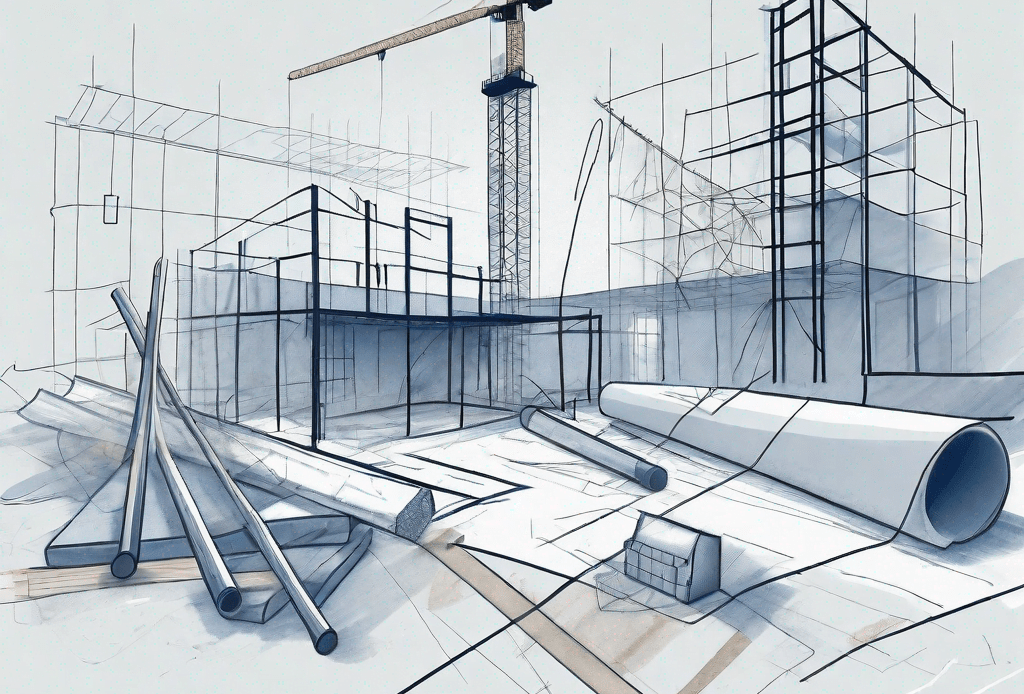


Avoid Costly Pitfalls: How to Resolve Payment Disputes in Construction Contracts Successfully
Introduction
In the realm of construction projects, managing payments is crucial for maintaining cash flow, fostering healthy contractor-client relationships, and ensuring project continuity. However, payment issues and disputes can often arise, leading to delays, disruptions, and strained partnerships. This article explores the complexities of payment issues and disputes in construction contracts, delving into their causes, implications, resolution strategies, and best practices for stakeholders to navigate effectively.
The construction industry is one of the most dynamic and economically significant sectors in the world. However, it is also one of the most dispute-prone industries, especially when it comes to payment issues. From small-scale building projects to multimillion-dollar infrastructure developments, the issue of payment disputes in construction contracts has continued to undermine relationships, delay progress, and escalate into legal battles. These disputes not only create financial strain on contractors and subcontractors but also damage the reputation and trust between parties, often leading to long-term business consequences.
Payment issues in construction contracts can arise for a variety of reasons. In many cases, they stem from misunderstandings or misinterpretations of the terms agreed upon in the contract. In others, they are a result of delayed approvals, financial constraints, or non-performance allegations. Construction projects typically involve a web of contractual relationships between the owner, contractor, subcontractors, suppliers, consultants, and sometimes financiers. With so many stakeholders involved, each with its expectations and financial obligations, the room for conflict is significant.
Moreover, construction projects are inherently risky, involving fluctuating costs, changing site conditions, delays caused by weather or third parties, and unexpected regulatory hurdles. When such challenges arise, they can lead to delays in payment, withheld funds, or disputes over who should bear the associated costs. Often, parties resort to blaming one another, with one side withholding payment while the other demands what they believe is rightfully owed. In such cases, legal interpretations of contract clauses become critical, and the lack of clarity or detail in the contract can result in protracted disputes.
One major factor that contributes to payment disputes in construction contracts is the lack of standardized contract language or poorly drafted agreements. Ambiguous terms related to milestone payments, progress certifications, retention money, or variations can quickly become contentious when parties begin to interpret them differently. In some instances, contractors may feel that their work has reached a milestone worthy of payment, while the employer may disagree based on performance quality or delay. This difference in expectations, if not properly addressed in the contract, often leads to claims and counterclaims.
Another significant issue is the misuse or misunderstanding of “pay-when-paid” and “pay-if-paid” clauses. These provisions are common in subcontractor agreements and are designed to shift the risk of non-payment from the main contractor to the subcontractor. However, depending on the jurisdiction, courts may interpret or enforce these clauses differently. In some countries, such clauses may be deemed unenforceable if they are considered unfair or if they contradict public policy. This legal uncertainty adds yet another layer of complexity to resolving payment disputes in construction contracts.
In Nigeria, and in many other developing economies, payment disputes are particularly prevalent in public sector construction projects. Contractors often experience delays in payment due to bureaucratic processes, budgetary constraints, or changes in government priorities. In extreme cases, contractors may wait several months—or even years—to receive payment for completed work. This not only strains their cash flow but also affects their ability to pay workers, purchase materials, and continue with ongoing projects. The ripple effect of these delays can lead to project abandonment, insolvency, or litigation.
Legal frameworks, while helpful, do not always provide quick relief. Going to court over a payment dispute in a construction contract can be expensive, time-consuming, and unpredictable. This is why many industry professionals now favor alternative dispute resolution (ADR) mechanisms such as arbitration, mediation, and adjudication. These options offer more flexibility, confidentiality, and faster resolutions, making them especially suitable for the construction sector, where time and cost are always critical considerations.
Nonetheless, the most effective way to address payment disputes is not through reactionary litigation but through preventive contract management. This means clearly defining payment obligations, incorporating fair risk allocation, and establishing dispute resolution procedures in the contract itself. Project participants should also prioritize open communication, project transparency, and timely documentation. By documenting each stage of the construction process, including delays, variations, and approvals, parties can reduce the likelihood of surprise claims or denial of payment.
The introduction of digital technologies into the construction industry has also created new opportunities for mitigating payment issues. Construction management software, digital invoicing, real-time tracking, and cloud-based documentation platforms can all contribute to better project visibility and accountability. When all stakeholders have access to up-to-date information, it becomes easier to verify progress, approve payments, and resolve disagreements.
Moreover, government intervention through legislative reforms can significantly reduce the occurrence of payment issues. Prompt payment laws, mandatory payment timelines, and penalties for late payment have been introduced in many jurisdictions to protect contractors and subcontractors from financial abuse. For instance, some countries require payment within 30 days of invoice submission, failing which interest accrues automatically. Such measures promote fairness, improve liquidity in the sector, and reduce reliance on litigation to enforce basic contractual rights.
Education and training also play a crucial role. Many construction professionals enter the industry without a strong understanding of contract law or dispute resolution techniques. By educating stakeholders—from site managers to senior executives—on the legal implications of contract clauses and payment obligations, the industry can foster a more legally aware and proactive workforce. This helps prevent disputes before they arise and promotes early settlement when conflicts do occur.
In summary, payment issues in construction contracts are not just legal problems—they are operational, financial, and relational challenges that can derail even the most well-planned projects. While disputes may be inevitable in some cases, they can be significantly minimized through good contract drafting, clear communication, early dispute resolution, and stakeholder education. In the long run, improving how construction payments are managed and disputes are resolved will benefit not just the companies involved but the industry as a whole, ensuring that infrastructure development continues smoothly, efficiently, and sustainably.
Understanding Payment Issues and Disputes in Construction Contracts
Payment issues and disputes in construction contracts encompass a range of challenges related to the timely and accurate exchange of payments between parties involved in the project. These issues can arise due to various factors, including:
1. Late Payments: Delays in releasing payments from clients to contractors or subcontractors, impacting cash flow and financial stability.
2. Payment Terms: Disputes over payment terms, milestones, invoicing procedures, and compliance with contractual obligations.
3. Progress Payments: Disagreements regarding the calculation, verification, or certification of progress payments based on completed work stages or milestones.
4. Retention: Retention amounts withheld by clients as security against defects or incomplete work, leading to disputes over release conditions and timing.
5. Disputed Work: Disputes arising from disagreements over the quality of workmanship, compliance with specifications, or alleged deficiencies requiring rectification.
Implications of Payment Issues and Disputes
The implications of unresolved payment issues and disputes in construction contracts can be far-reaching:
i. Cash Flow Constraints: Delayed or disputed payments can strain contractor finances, impacting the ability to procure materials, pay subcontractors, and sustain operations.
ii. Project Delays: Disputes over payments can lead to work stoppages, project slowdowns, or disruptions in construction schedules, affecting overall project timelines and completion dates.
iii.Legal and Financial Risks: Non-payment or disputed payments may escalate to legal actions, arbitration, or liens, exposing parties to legal costs, liabilities, and damage to business reputations.
iv. Relationship Strain: Payment disputes can sour relationships between contractors, subcontractors, and clients, eroding trust, communication, and collaborative efforts essential for project success.
Strategies for Resolving Payment Issues and Disputes
Effectively resolving payment issues and disputes requires proactive management, clear communication, and strategic approaches:
1. Contractual Clarity: Ensure payment terms, milestones, invoicing procedures, and dispute resolution mechanisms are clearly defined and documented in the construction contract.
2. Documentation and Records: Maintain accurate records of contract documents, invoices, progress reports, payment receipts, correspondence, and any agreements related to payments.
3. Prompt Invoicing: Submit accurate and timely invoices based on completed work stages or milestones, adhering to contractual requirements and invoicing procedures.
4. Communication Channels: Establish open lines of communication between parties to address payment issues promptly, clarify misunderstandings, and negotiate resolutions.
5. Dispute Resolution Mechanisms: Utilize dispute resolution mechanisms specified in the contract, such as negotiation, mediation, arbitration, or adjudication, to resolve payment disputes efficiently and amicably.
Best Practices for Managing Payment Issues
To mitigate the occurrence of payment issues and disputes in construction contracts, stakeholders can implement best practices:
1. Clear Payment Terms: Include detailed payment terms in contracts, specifying payment milestones, due dates, methods of payment, and consequences for late payments or non-compliance.
2. Progress Monitoring: Monitor project progress closely, track milestones achieved, and verify completed work stages to facilitate accurate and timely progress payments.
3. Payment Security: Implement mechanisms such as performance bonds, advance payments, or milestone-based payments to ensure financial security and mitigate payment risks.
4. Contract Compliance: Adhere to contractual obligations, including payment terms, invoicing procedures, certification requirements, and dispute resolution timelines specified in the contract.
5. Relationship Management: Foster positive relationships through transparent communication, fairness in payment practices, and timely resolution of disputes to build trust and collaboration among project stakeholders.
Steps in Resolving Payment Disputes
Resolving payment disputes in construction contracts involves a structured approach to address issues, negotiate resolutions, and safeguard project interests:
1. Issue Identification: Identify the root cause of the payment dispute, gather relevant documentation, and assess the impact on project timelines, costs, and contractual obligations.
2. Negotiation: Engage in constructive negotiations with all parties involved to explore mutually agreeable solutions, clarify misunderstandings, and reach a settlement regarding disputed payments.
3. Mediation: If negotiations fail to resolve the dispute, consider mediation facilitated by a neutral third party to facilitate communication, explore options, and reach a voluntary agreement.
4. Arbitration or Adjudication: If mediation is unsuccessful, parties may resort to arbitration or adjudication as formal dispute resolution mechanisms specified in the contract to render a binding decision.
5. Legal Recourse: As a last resort, parties may pursue legal action through litigation to resolve payment disputes, enforce contractual rights, and seek remedies or damages for non-payment or breach of contract.
Conclusion
In conclusion, payment issues and disputes in construction contracts pose significant challenges but can be effectively managed through proactive contract management, clear communication, and collaborative dispute resolution strategies.
By understanding the causes, implications, resolution strategies, and best practices associated with payment issues and disputes, stakeholders can navigate complexities, protect financial interests, and promote successful project outcomes.
Embracing transparency, adherence to contractual obligations, and proactive engagement in dispute resolution are essential for fostering a conducive environment for innovation, growth, and sustainable development in the construction industry. As Nigeria continues its path of infrastructure development and economic growth, a structured approach to managing payment issues and disputes will be instrumental in achieving project success, enhancing stakeholder satisfaction, and fostering long-term relationships built on trust and reliability.
In conclusion, payment issues in construction contracts are a critical challenge that cannot be overlooked. Whether due to unclear payment terms, cash flow problems, non-performance claims, or administrative delays, these disputes have far-reaching consequences that impact the financial health of the parties involved and the timely delivery of construction projects.
The key to avoiding such disputes lies in adopting a proactive and preventive approach. Clear, well-drafted construction contracts that address every payment obligation, including timelines, conditions for progress payments, final payment criteria, and provisions for change orders, are essential. Contracts should also define acceptable reasons for withholding payments, dispute resolution mechanisms, and legal remedies in case of breach.
Project stakeholders must also invest in strong communication practices and project management tools. Maintaining accurate documentation, conducting regular project assessments, and promptly addressing issues as they arise can go a long way in minimizing misunderstandings and disputes. Transparency throughout the construction process builds trust and ensures that any concerns related to payment are handled early and constructively.
For legal professionals and consultants, it is crucial to ensure that clients understand the implications of clauses such as “pay-when-paid,” liquidated damages, and performance bonds. Legal literacy among parties can prevent inadvertent breaches of contract and improve negotiation outcomes when disputes emerge.
When disputes do occur, alternative dispute resolution methods like mediation, adjudication, and arbitration can offer faster, less costly, and less adversarial alternatives to litigation. These methods are particularly effective in the construction industry, where preserving long-term relationships and maintaining project continuity are important considerations.
Furthermore, governments and regulatory bodies can play a vital role by enacting laws and policies that promote prompt payment, protect subcontractors, and penalize undue delay or unfair practices. In Nigeria, the adoption of a more transparent procurement process and efficient payment systems for public construction projects could reduce payment-related disputes and enhance investor confidence in the construction sector.
Ultimately, resolving payment disputes in construction contracts is not only a legal task but also a strategic and collaborative effort. By focusing on clarity, compliance, communication, and conflict resolution, stakeholders can ensure smoother project execution and sustainable success in the construction industry.
As the construction industry continues to evolve, the issue of payment disputes in construction contracts remains a persistent and disruptive force. These disputes can lead to stalled projects, financial strain, reputational damage, and lengthy legal battles that ultimately harm all parties involved. However, with a strategic and forward-thinking approach, stakeholders can prevent many of these issues and create more transparent, reliable, and fair contracting environments.
One of the most effective ways to minimize payment issues is through comprehensive contract drafting. Construction contracts must be detailed, clear, and tailored to the specific needs and risks of the project. Every clause—particularly those related to payment milestones, retention sums, variation procedures, and dispute resolution—should be drafted in unambiguous language. Standard form contracts such as those developed by FIDIC, JCT, or NEC can serve as useful frameworks, but they should always be adapted to suit local laws and project realities.
Another essential practice is the implementation of strong project management and communication systems. Many payment disputes stem not from bad intentions but from miscommunication and lack of documentation. Regular progress meetings, site inspections, and digital project tracking tools can help ensure that everyone is on the same page. Accurate recordkeeping, such as daily reports, change order logs, and signed approvals, can provide crucial evidence in case of a dispute and help avoid disagreements altogether.
Contractors and subcontractors must also be proactive in understanding their rights and obligations under the contract. Legal literacy is critical in recognizing potential risks before they escalate. It is especially important for subcontractors to understand clauses like “pay-when-paid” and their enforceability under local law, as these can drastically affect cash flow and project participation. Consulting with legal professionals before signing a contract or initiating a claim can help parties make informed decisions and avoid costly mistakes.
In addition to private sector improvements, legislative reforms and government policies can play a transformative role. Governments can enact prompt payment legislation that sets mandatory timelines for payment, imposes penalties for late payment, and establishes efficient adjudication mechanisms. Such reforms are essential in markets like Nigeria, where public sector projects often suffer from delayed payments due to bureaucratic inefficiencies and budgetary shortfalls.
Moreover, embracing alternative dispute resolution (ADR) mechanisms is key to avoiding expensive and time-consuming litigation. Mediation, adjudication, and arbitration offer more flexible, faster, and less adversarial options for resolving disputes. These methods are particularly well-suited to the construction industry, where ongoing relationships and project continuity are often at stake. Many standard form contracts now include ADR clauses as part of their dispute resolution frameworks, and parties are encouraged to use them as the first step in addressing conflicts.
In the long term, the industry must focus not just on resolving disputes, but on building a culture of fairness, transparency, and accountability. By treating payment as a collaborative responsibility rather than a contentious obligation, stakeholders can foster stronger partnerships and ensure the successful delivery of construction projects. The path forward lies in education, innovation, legal reform, and a shared commitment to equitable practices.
· Payment Disputes
· Construction Contracts
· Cash Flow
· Retention Payments
· Progress Payments
· Invoicing Procedures
· Contractual Clarity
· Payment Terms
· Dispute Resolution
· Arbitration
· Mediation
· Legal Recourse
· Contract Compliance
· Relationship Management
· Project Delays
Contact Us
Chaman Law Firm today. Our offices are conveniently located in Lagos, FCT Abuja, Ogun State, and the UK. We are readily available to assist you with your legal needs. Whether you require consultation, representation, or ongoing legal support, Chaman Law Firm is your trusted partner.
Call us at 08065553671 or email us at info@chamanlawfirm.com to schedule a consultation.


